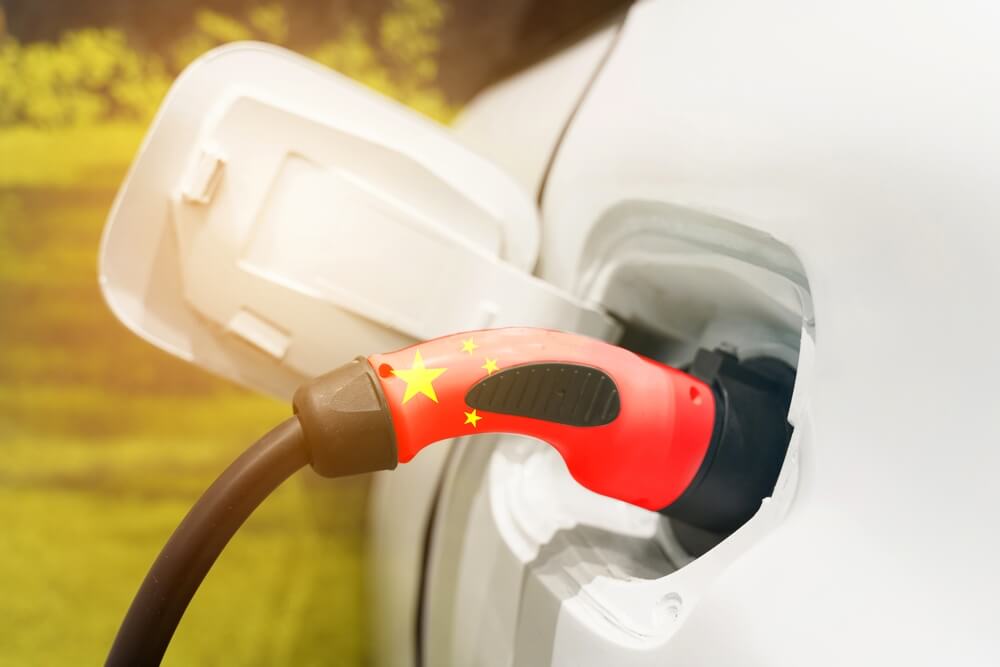The growth in sales of electric vehicles underscores that EVs will have a role in diversifying America’s transportation mix. EV mandates have prompted Americans to adopt EVs at a rapid pace, as the National Renewable Energy Laboratory (NREL) predicts that by 2030 33 million EVs will be on American roads. Unfortunately, this pace is not fast enough for the Biden administration.
In an effort to curb transportation sector emissions, the Environmental Protection Agency (EPA) recently finalized a rule that will require more than 50% of new vehicles sold by 2032 to be electric. It’s proponents claim this rule will lead the clean vehicle future and save drivers money, but the administration’s decision to force this transition overlooks several significant national security risks we must consider.
For starters, America’s rapid-paced adoption of electric vehicles opens our country to economic and strategic manipulation by China. Currently, Beijing has a stranglehold on the EV supply chain. China mines over 60 percent and refines almost 90 percent of rare earth minerals necessary for their production. Ceding significant control of America’s transportation sector to a geopolitical rival through rapid adoption of electric vehicles will open our country to economic and strategic manipulation.
Ironically, President Biden has already acknowledged that China engages in “unfair trade policies and non-market economic practices,” but that has not deterred him from pushing a policy that would make us more dependent on them. As many countries, including the United States, work to diversify their sources of these critical minerals away from China and build out national security frameworks to protect them moving forward, taking such measures work at cross purposes. Alternative supply chains are simply not equipped for the sudden increased demand.
Fossil fuels are not the enemy
This is unfortunately just one of many policies elected officials are enacting in an attempt to placate environmental activists that would make America and its allies more susceptible to foreign threats.
Edinburgh, Scotland, for example, recently announced its intent to ban fossil fuel advertisements on city property. While not as impactful as a new EV mandate, it is a concerning development for numerous reasons.
Energy products like oil and gas are essential to the Scottish economy, representing roughly 9 percent of Scotland’s GDP. Government sanctioned attacks by a NATO ally on an industry critical for economic and national security sets the wrong tone. Furthermore, such laws could be precursor to more destructive policies that could place a greater dependence on Chinese sourced EVs and work at conflicting aims at a time when Great Britain is threatening sanctions on Chinese car manufacturers like BYD and MG.
Our rapid transition also overlooks key challenges with EV adoption, such as charging infrastructure and electric vehicle supply systems. The bipartisan infrastructure package in 2021 authorized millions for charging infrastructure, and in total there has been over $7.5 billion in federal grants allocated to developing infrastructure, but the numbers don’t lie. Since the bill’s passage, the U.S. has constructed a mere seven charging stations, a clear demonstration that the foundational pieces necessary for widescale use of EVs are still lacking no matter how aggressive the mandate.
EVs usher in new cyber threat
Similarly, cybersecurity threats are a major concern as we further electrify the transportation sector. The FBI recently warned that Chinese hackers have broken into critical American infrastructure as part of an ongoing Chinese hacking campaign.
More EVs means more points of entry for malicious activities due to their connection to the electric grid. Currently, the cyber security framework for EVs is voluntary consisting of an amalgamation of various industry standards and best practices. But vulnerabilities are widespread. From collecting data from a car’s GPS to connecting your personal device to your car for easy access to music and contacts, this area of security is often overlooked and does not have an easy fix on a large scale. Potentially, China could demobilize EV on a massive scale causing widespread panic especially if tied to other disruptive actions.
The Biden administration must ensure that the country’s environmental aspirations do not leave the nation unprotected, nor give adversaries an advantage over the U.S. It must consider the vulnerabilities that a rapid EV transition would place on Americans, both as it applies to data privacy and critical infrastructure.
As China makes increasingly aspirational moves on the international stage and near-peer competition grows, the U.S. must lead. Our country must demonstrate its ability to adapt and anticipate the moves of our adversaries, not open our country and our people up to unnecessary vulnerabilities through ill-conceived mandates.







